
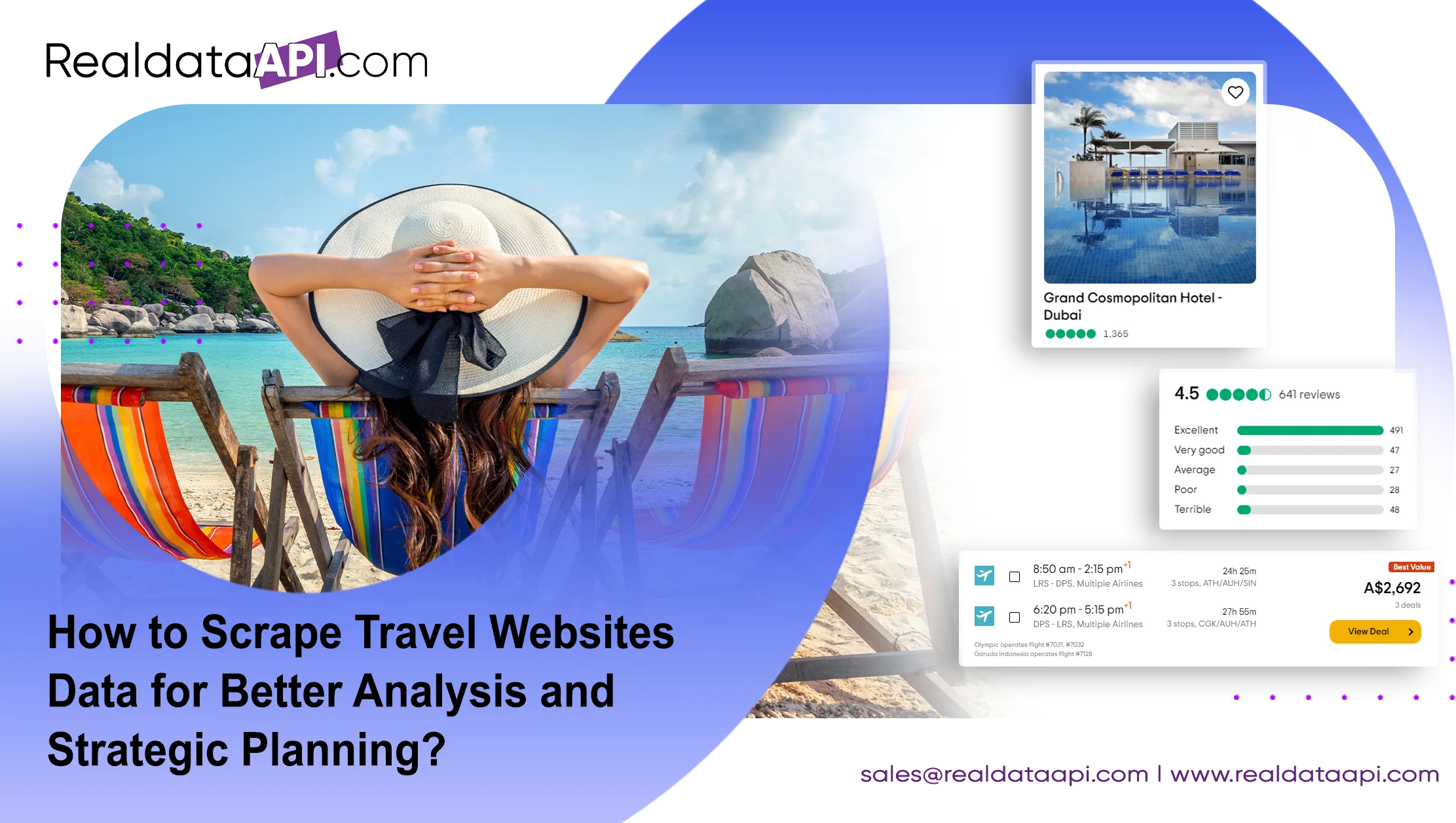
Introduction
In the rapidly evolving travel industry, access to accurate and up-to-date data is crucial for making informed decisions. Scraping travel websites data allows businesses to gather valuable insights that drive strategic planning, optimize marketing efforts, and enhance customer experiences. By extracting information on pricing, availability, reviews, and trends, companies can stay ahead of the competition and tailor their offerings to meet market demands.
This comprehensive guide will explore how to effectively scrape travel websites data and use it for better analysis and strategic planning. We will cover the essential tools and techniques needed to extract travel websites data efficiently, ensuring you can collect and analyze the information that matters most to your business.
Whether you’re monitoring competitors, tracking market trends, or optimizing your pricing strategy, scraping travel websites data provides the foundation for data-driven decision-making. By leveraging this powerful technique, businesses can gain a competitive edge and improve their overall performance in the travel industry.
From understanding the basics to implementing advanced scraping methods, this guide will equip you with the knowledge and skills to successfully scrape travel websites data and transform it into actionable insights. Start harnessing the power of travel data today to drive your strategic planning and achieve better business outcomes.
Why Scrape Travel Websites Data?
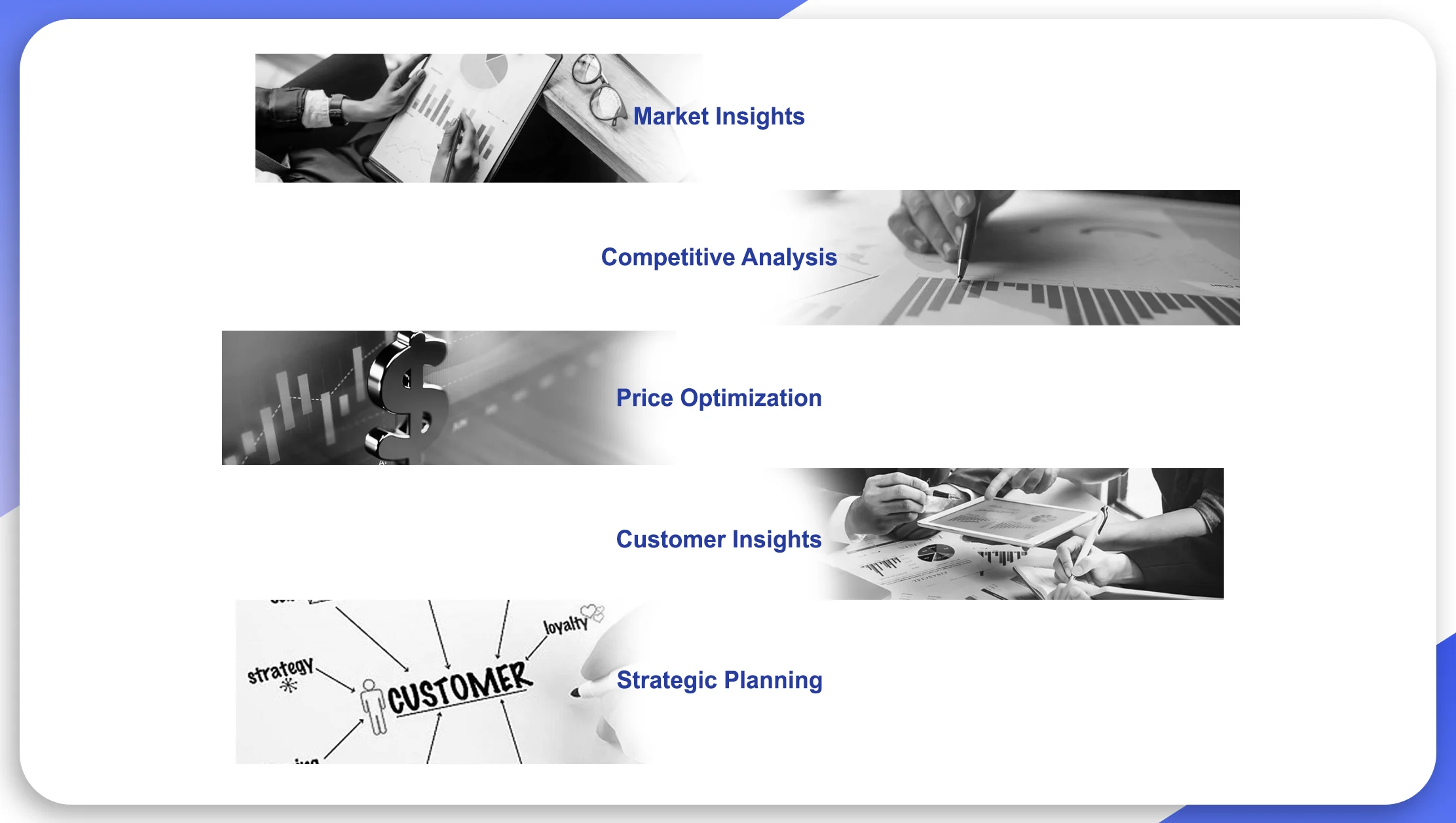
In the fiercely competitive travel industry, having access to accurate and up-to-date information is crucial for making well-informed decisions. Travel websites data collection equips businesses with valuable insights that can significantly influence their strategic planning, marketing efforts, and overall customer experience. Here are key reasons why extracting travel websites data is essential for your business:
1. Market Insights
Extracting travel websites data allows businesses to gain a comprehensive understanding of market trends. By analyzing data from various travel platforms, companies can identify popular destinations, seasonal travel patterns, and emerging trends. This knowledge is vital for tailoring marketing campaigns and product offerings to align with current market demands.
2. Competitive Analysis
Scraping travel websites data provides detailed insights into competitors' pricing, promotions, and product offerings. This competitive intelligence helps businesses formulate strategies to differentiate their services and enhance market positioning. By keeping an eye on competitors, companies can adjust their pricing and offerings to stay ahead.
3. Price Optimization
One of the main advantages of extracting travel websites data is the ability to refine pricing strategies. Real-time data on hotel rates, flight prices, and travel packages enable businesses to adjust their prices dynamically based on market conditions. This ensures they remain competitive while maximizing revenue.
4. Customer Insights
Understanding customer preferences and behaviors is crucial for enhancing service offerings. Travel websites data collection allows businesses to analyze reviews, ratings, and feedback from travelers. This information helps improve customer satisfaction by customizing services to better meet their needs and expectations.
5. Strategic Planning
Extracting travel websites data supports strategic planning by providing a holistic view of the travel market. Businesses can use this data to identify new opportunities, forecast demand, and make informed decisions about expanding into new markets or adjusting their current strategies.
Scraping travel websites data is a powerful tool for gaining market insights, conducting competitive analysis, optimizing pricing, understanding customer preferences, and supporting strategic planning. By leveraging this data, businesses can make well-informed, data-driven decisions that enhance their competitiveness and drive growth in the travel industry.
Tools and Technologies for Scraping Travel Websites Data
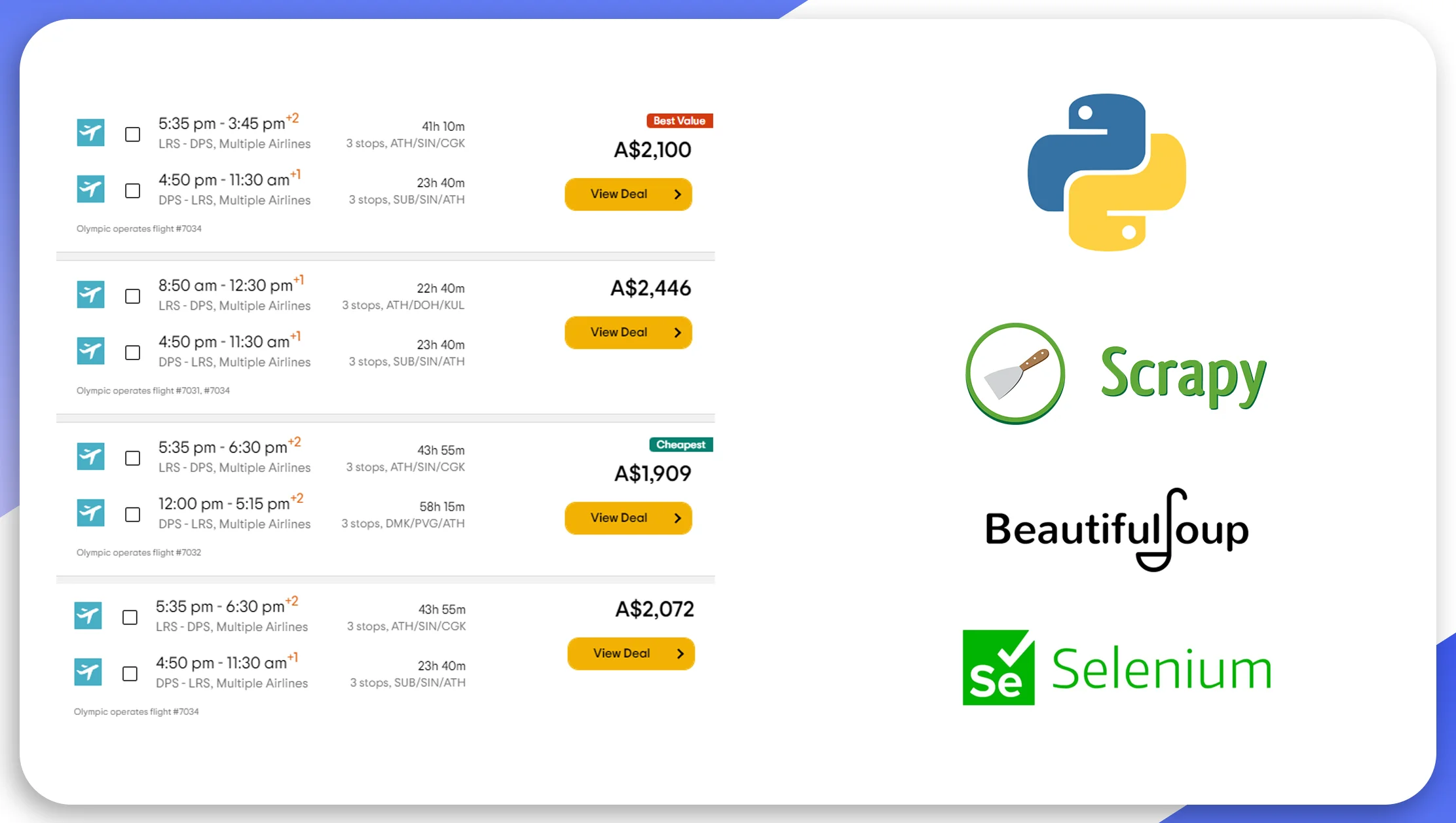
1. Python Libraries
Python is a powerful language for web scraping due to its extensive libraries. For scraping travel websites data, consider using:
xRequests: For sending HTTP requests and retrieving data.
xBeautifulSoup: For parsing and extracting data from HTML content.
xSelenium: For scraping dynamic websites with JavaScript content.
xScrapy: For building web scrapers and managing large-scale data extraction projects.
2. API Clients
Many travel websites provide APIs that offer structured data. Use API clients such as Postman to test endpoints and manage requests. APIs often provide a more reliable and structured way to access data compared to web scraping.
Step-by-Step Guide to Scrape Travel Websites Data
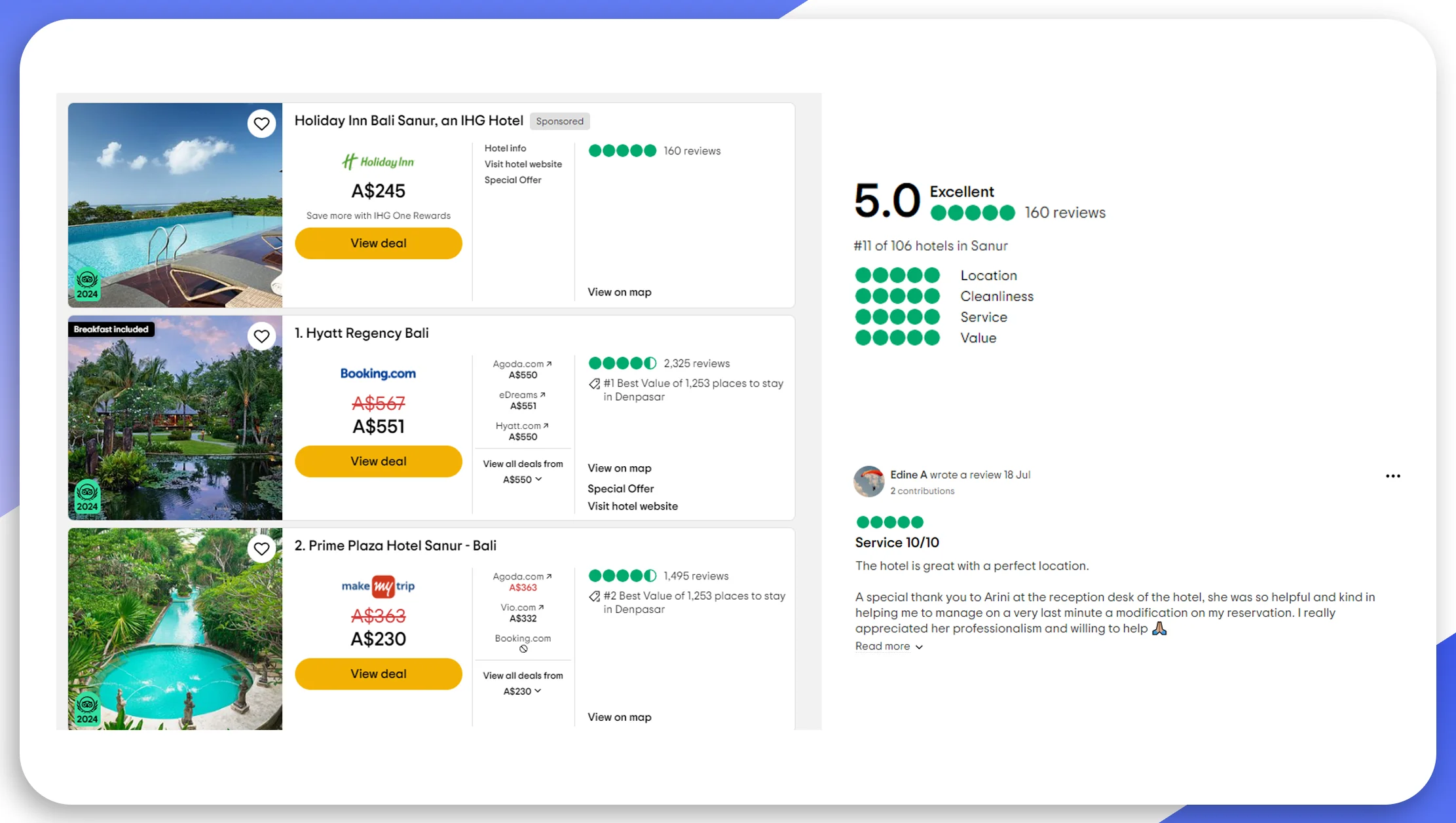
1. Identify Your Data Needs
Determine what specific data you need to collect from travel websites. This could include hotel prices, flight schedules, reviews, ratings, or travel package details. Clearly defining your data requirements will help in designing an effective scraping strategy.
2. Review Website Structure and API Documentation
Before scraping, review the website’s structure and API documentation. Understanding the layout and data format helps in efficiently extracting the desired information. For APIs, check for authentication requirements and available endpoints.
3. Set Up Your Environment
Ensure you have the necessary tools and libraries installed. For Python-based scraping, you can use:
pip install requests beautifulsoup4 selenium scrapy4. Send HTTP Requests
Use the requests library to send HTTP requests and retrieve data from travel websites. Here’s a basic example of sending a GET request:
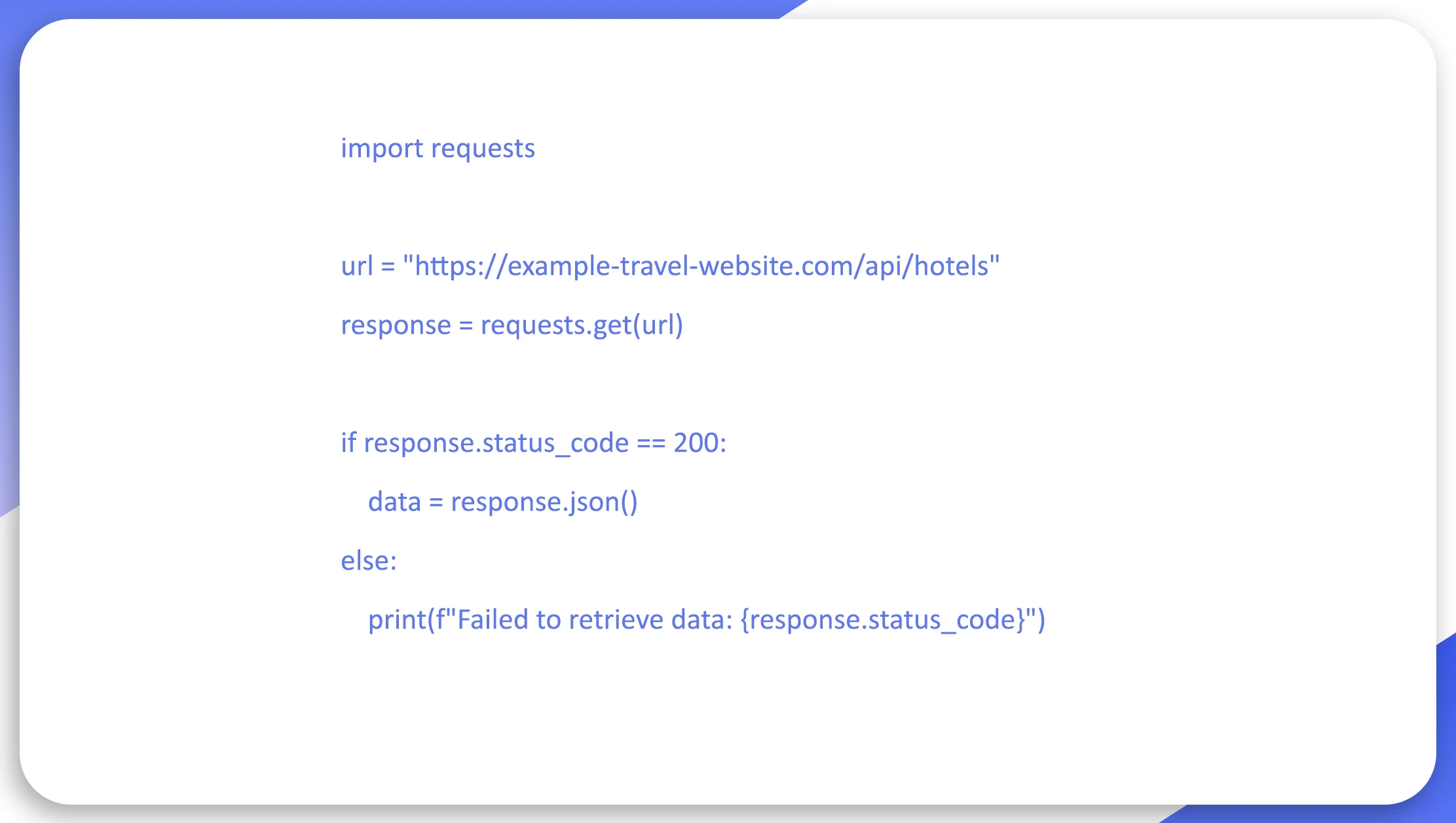
5. Parse and Extract Data
Once you have the data, parse and extract the relevant information. For HTML content, use BeautifulSoup:
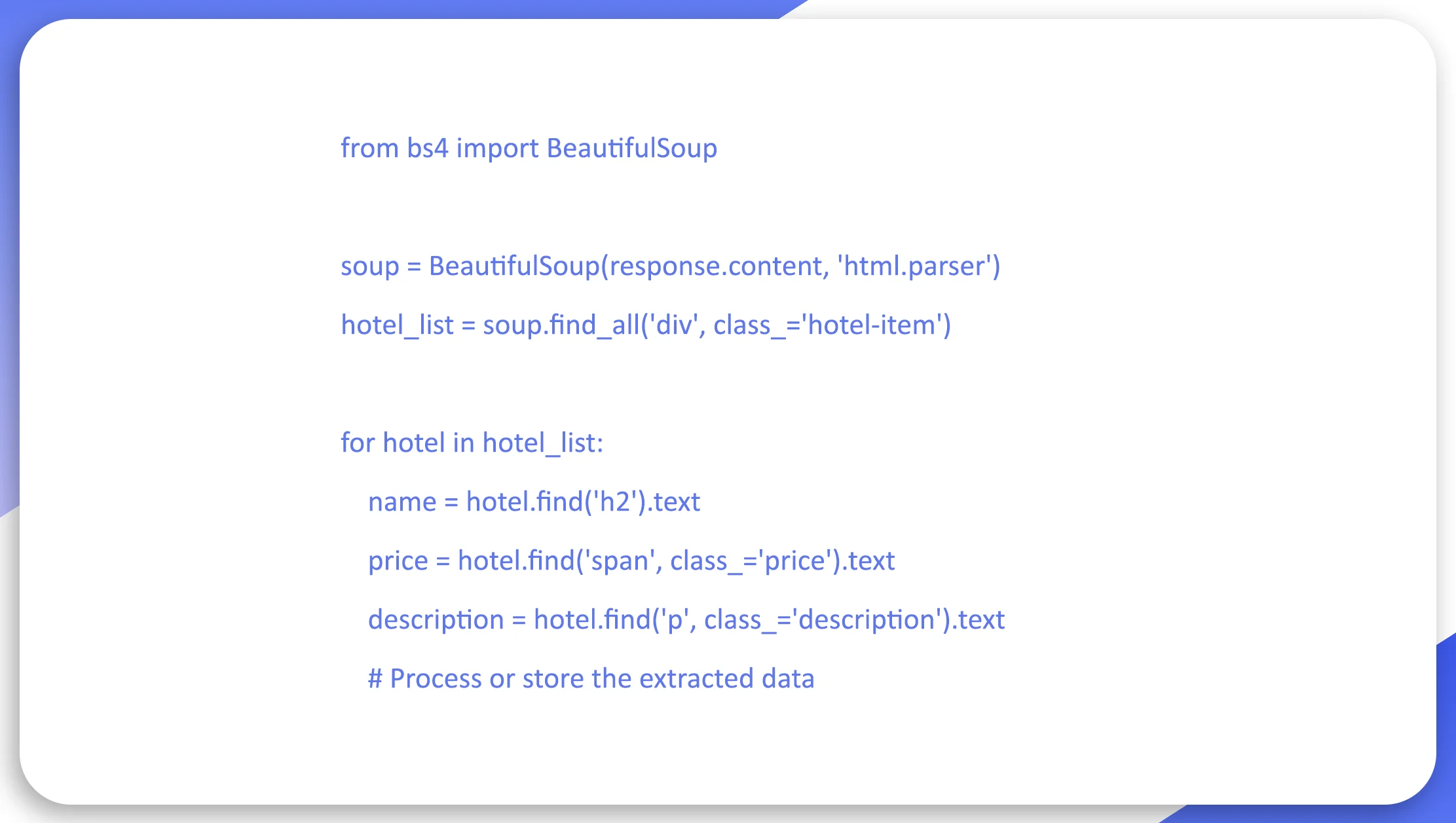
For JSON data, access the fields directly:
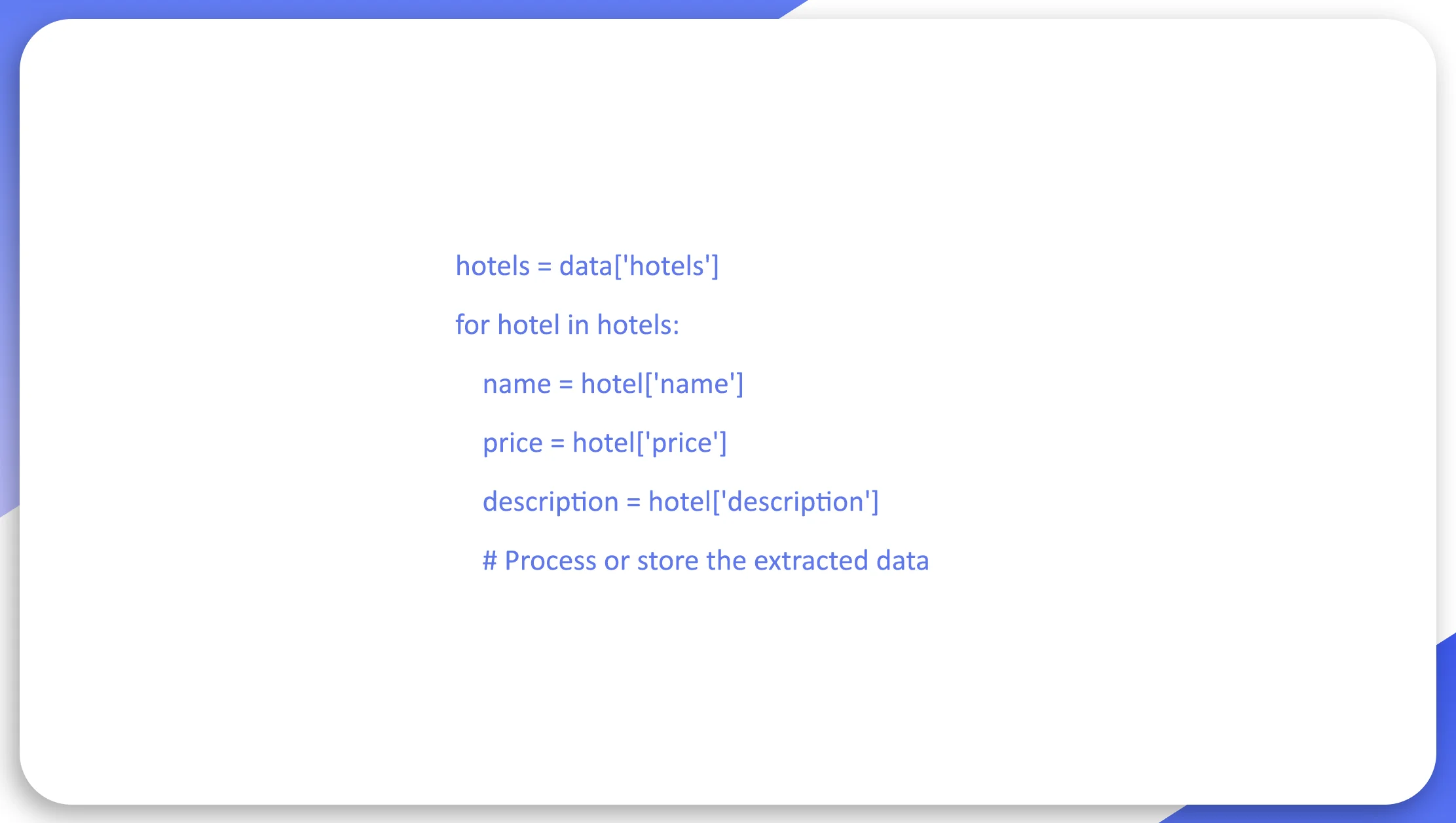
6. Store Data
Store the extracted data in a suitable format for analysis. Options include databases like SQLite or MongoDB, or files such as CSV:
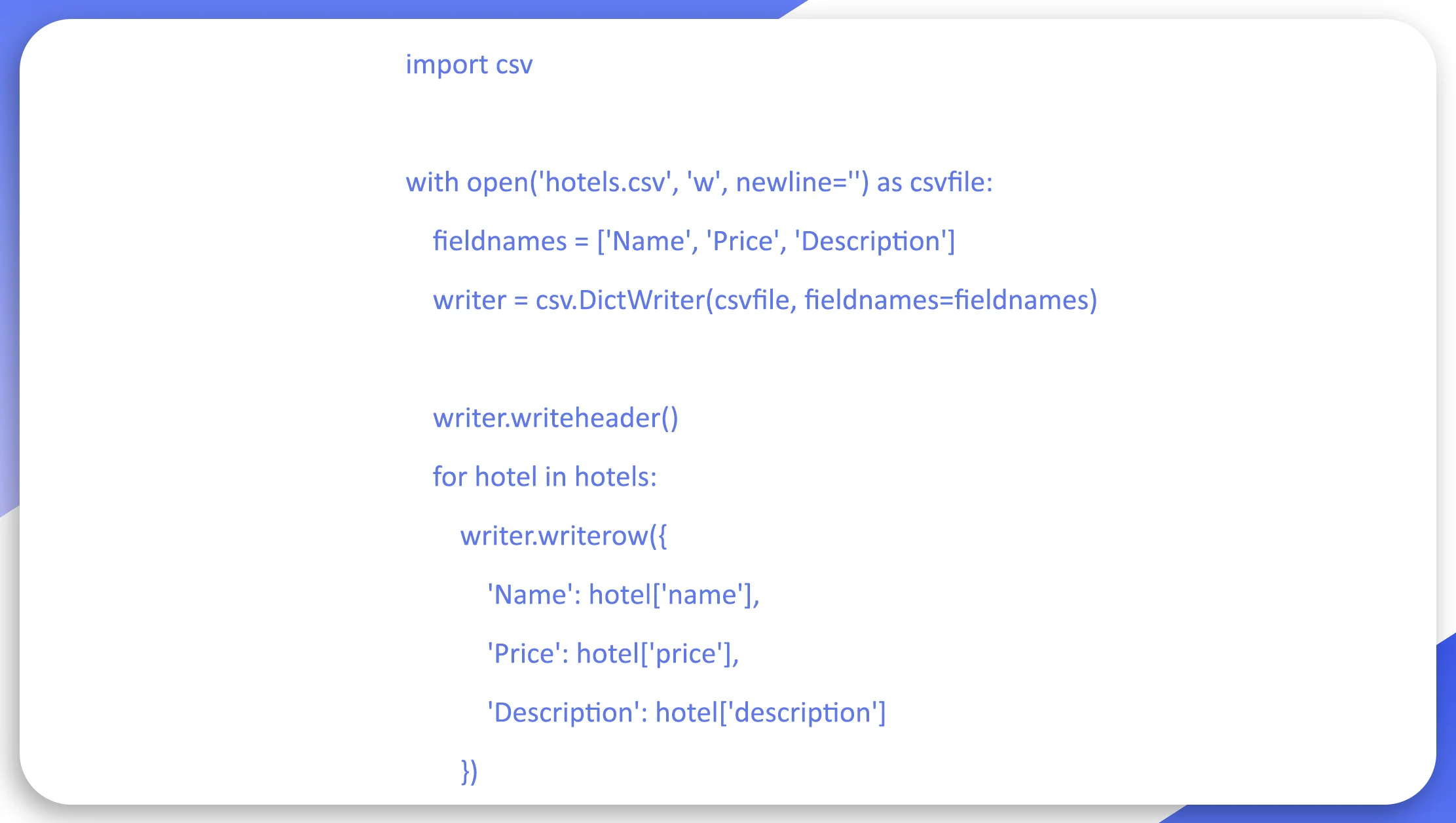
7. Handle Errors and Exceptions
Implement error handling to manage issues such as rate limits or connection errors:
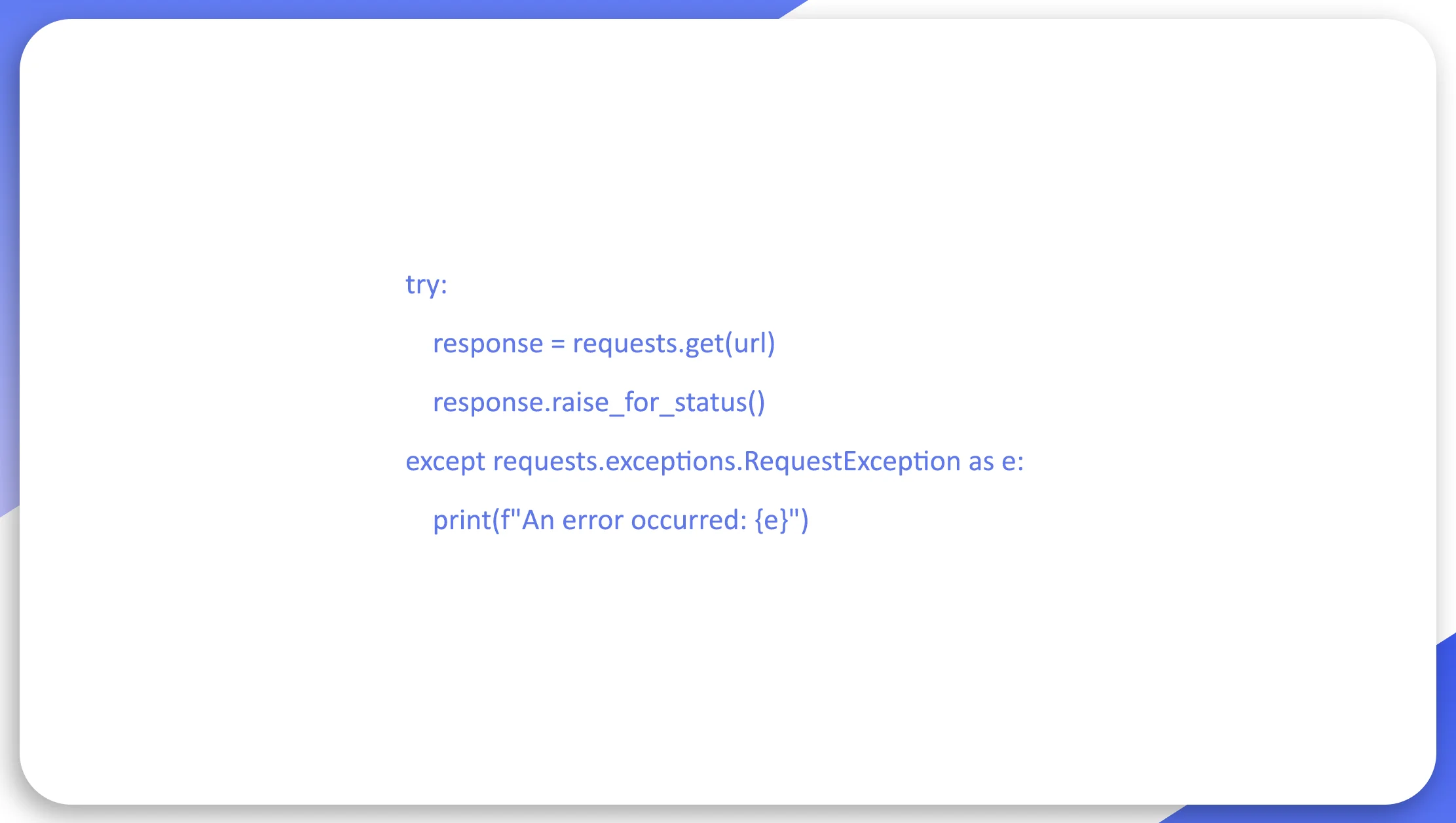
8. Respect Website Policies
Always review and adhere to the terms of service of the travel websites. Avoid scraping data excessively or causing server overload. Implement rate limiting to respect the website’s policies.
Analyzing and Using Travel Data
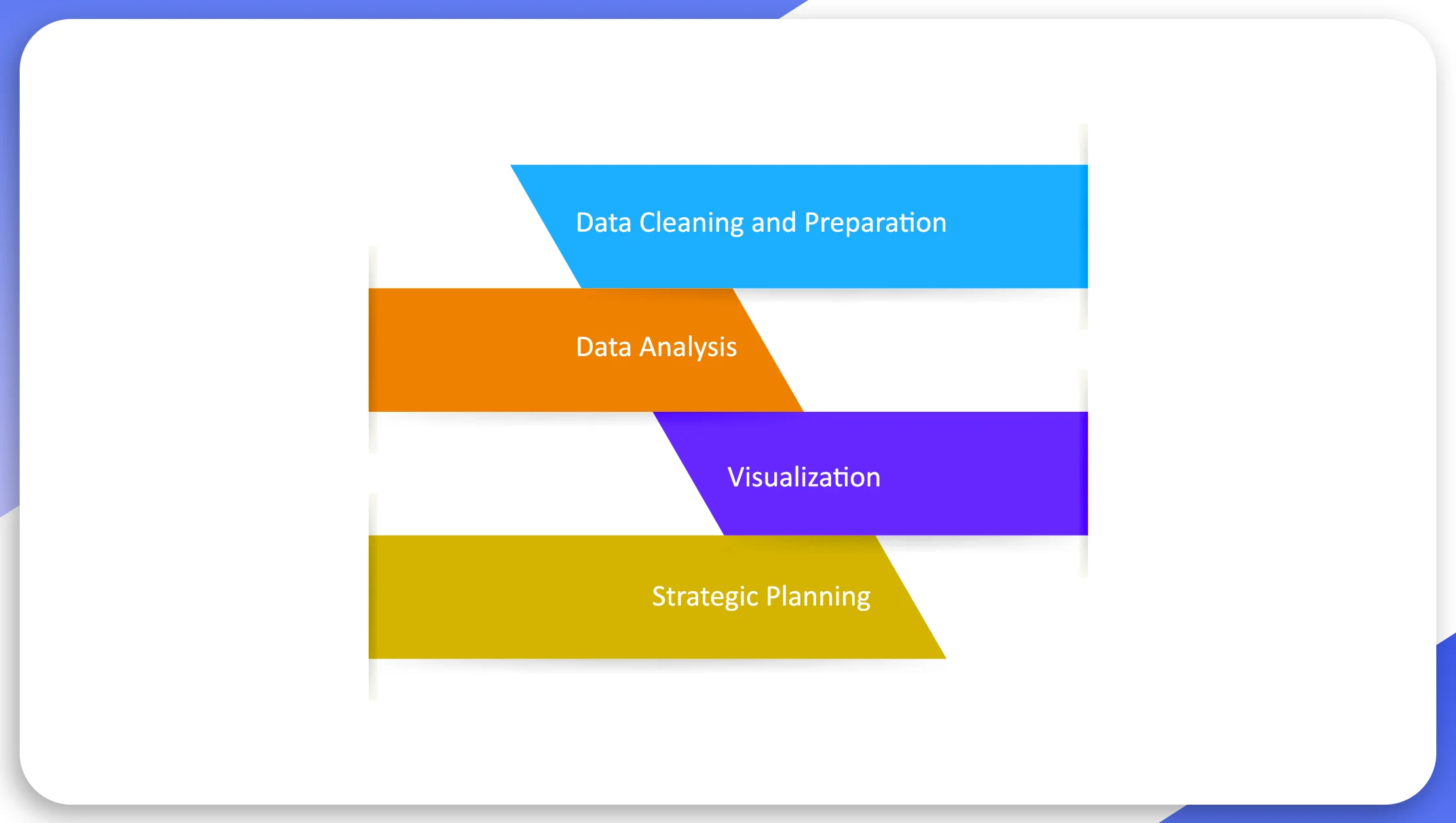
1. Data Cleaning and Preparation
Before analysis, clean and preprocess the scraped data. Remove duplicates, handle missing values, and ensure data consistency.
2. Data Analysis
Use data analysis tools and techniques to derive insights from the collected data. Common approaches include:
Descriptive Statistics: To summarize data characteristics.
Trend Analysis: To identify patterns and trends.
Competitive Benchmarking: To compare your data with competitors.
3. Visualization
Visualize the data using tools like Matplotlib or Tableau to present findings clearly. Visualizations can include charts, graphs, and heatmaps to illustrate trends and insights.
4. Strategic Planning
Leverage the analyzed data to inform strategic planning. Use insights to optimize marketing strategies, improve pricing models, and enhance customer experience.
Conclusion
Scraping travel websites data provides a wealth of information that can drive better analysis and strategic planning. By following the steps outlined in this guide and using the right tools and methodologies, businesses can gain valuable insights into market trends, competitor behavior, and customer preferences.
Remember to approach scraping ethically and responsibly, adhering to website policies and handling data with care. With effective data collection and analysis from Real Data API , you can stay ahead in the competitive travel industry and make informed, data-driven decisions.
Ready to transform your travel data insights? Start scraping travel websites data with Real Data API today and unlock new opportunities for your business!













